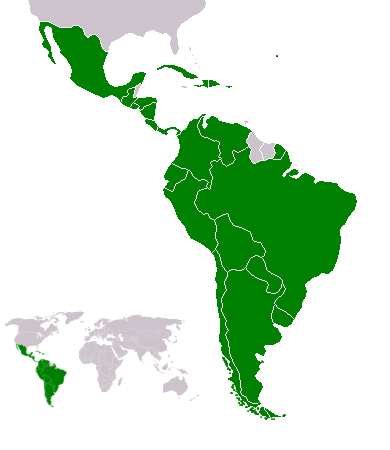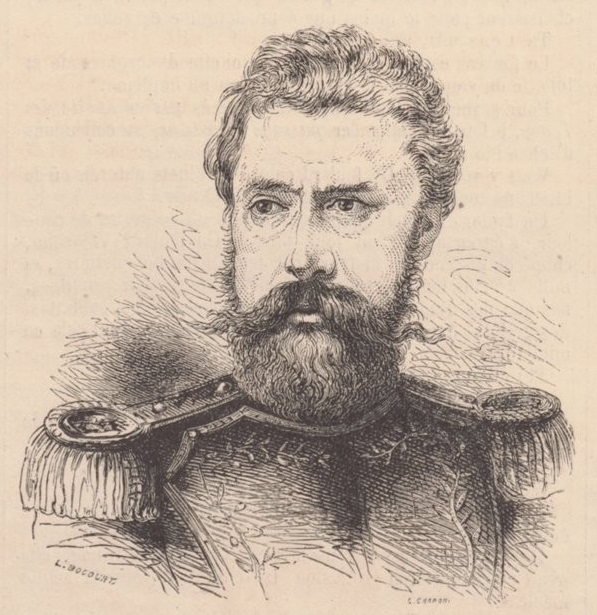|
Alberto Demicheli
Alberto Pedro Demicheli Lizaso (August 7, 1896 – October 12, 1980) was a Uruguayan political figure. Demicheli was a ''de facto'' President of Uruguay in 1976 as a non-democratically elected authority of the civic-military dictatorship. Background He was a noted jurist and economist and previously served as interior minister under President Gabriel Terra. A member of the Colorado Party, Demicheli was one of a number of civilians who participated in the civilian-military administration which took office following President Juan Maria Bordaberry's coup in 1973. President of Uruguay He succeeded Bordaberry as President in July 1976. Aged 80 by the end of his brief period as President, he was the oldest ever president of Uruguay. While in office he adopted measures designed to liberalize the economy. Demicheli was a relative moderate within the civilian-military administrations which ruled Uruguay between 1973 and 1985, in that, although he was known for measures deemed ... [...More Info...] [...Related Items...] OR: [Wikipedia] [Google] [Baidu] |
President Of Uruguay
The president of Uruguay ( es, Presidente del Uruguay), officially known as the president of the Oriental Republic of Uruguay (), is the head of state and head of government of Uruguay. Their rights are determined in the Constitution of Uruguay. Along with the Secretariat of the Presidency, the Council of Ministers and the director of the Office of Planning and Budget, the President is part of the executive branch. In case of absence, their office is exercised by the vice president. In turn, the president of the republic is the commander in chief of the Armed Forces. Since 1990, the president's term has begun and ended on 1 March. This same date for ending the presidency also happened during the National Council of Government (1952–1967) and it has been not unusual since 1839. The current president since 1 March 2020 is Luis Lacalle Pou, who is the 42nd president of Uruguay—and also the child of the 36th president, Luis Alberto Lacalle. Features of the office Require ... [...More Info...] [...Related Items...] OR: [Wikipedia] [Google] [Baidu] |
Interior Minister
An interior minister (sometimes called a minister of internal affairs or minister of home affairs) is a cabinet official position that is responsible for internal affairs, such as public security, civil registration and identification, emergency management, supervision of regional and local governments, conduct of elections, public administration and immigration (including passport issuance) matters. This position is head of a department that is often called an interior ministry, a ministry of internal affairs or a ministry of home affairs. In some jurisdictions, there is no department called an "interior ministry", but the relevant responsibilities are allocated to other departments. Remit and role In some countries, the public security portfolio belongs to a separate ministry (under a title like "ministry of public order" or "ministry of security"), with the interior ministry being limited to control over local governments, public administration, elections and similar matters. ... [...More Info...] [...Related Items...] OR: [Wikipedia] [Google] [Baidu] |
List Of Political Families
This is an incomplete list of prominent political families. Monarchical dynasties are not included, unless certain descendants have played political roles in a republican structure (e.g. Arslan family of Lebanon and Cakobau family of Fiji). Albania The Hoxha family *Hysen Hoxha (Albanian independence leader; uncle of Enver Hoxha) *Enver Hoxha (First Secretary of the Albanian Labour Party, 1944–1985) *Nexhmije Hoxha (member of the Central Committee of the Albanian Labour Party; wife of Enver Hoxha) Peristeri family *Manush Myftiu ( Chairman of the Assembly of the Republic) *Pilo Peristeri (member of the Central Committee of the Albanian Labour Party) The Nano family (father-son) *Thanas Nano (government broadcaster under Hoxha) **Fatos Nano (Prime Minister of Albania) The Pashko family (spouses) *Josif Pashko (member of the Central Committee of the Albanian Labour Party) * Eleni Terezi (member of the Central Committee of the Albanian Labour Party) The Shehu family *Mehmet ... [...More Info...] [...Related Items...] OR: [Wikipedia] [Google] [Baidu] |
Politics Of Uruguay
The politics of Uruguay abide by a presidential representative democratic republic, under which the President of Uruguay is both the head of state and the head of government, as well as a multiform party system. The president exercises executive power and legislative power and is vested in the two chambers of the General Assembly of Uruguay. The Judiciary is independent from the executive and legislature. The Colorado and National parties have been locked in a power struggle, with the predominance of the Colorado party throughout most of Uruguay's history. The 2004 election, however, brought the Encuentro Progresista-Frente Amplio-Nueva Mayoría, a coalition of socialists, former Tupamaros, communists, social democrats, and Christian Democrats among others to power with majorities in both houses of parliament. A majority vote elected President Tabaré Vázquez. In 2009, the Broad Front once again won the elections with a plurality of the votes. A presidential runoff was tri ... [...More Info...] [...Related Items...] OR: [Wikipedia] [Google] [Baidu] |
De Facto
''De facto'' ( ; , "in fact") describes practices that exist in reality, whether or not they are officially recognized by laws or other formal norms. It is commonly used to refer to what happens in practice, in contrast with ''de jure'' ("by law"), which refers to things that happen according to official law, regardless of whether the practice exists in reality. History In jurisprudence, it mainly means "practiced, but not necessarily defined by law" or "practiced or is valid, but not officially established". Basically, this expression is opposed to the concept of "de jure" (which means "as defined by law") when it comes to law, management or technology (such as standards) in the case of creation, development or application of "without" or "against" instructions, but in accordance with "with practice". When legal situations are discussed, "de jure" means "expressed by law", while "de facto" means action or what is practiced. Similar expressions: "essentially", "unofficial", "in ... [...More Info...] [...Related Items...] OR: [Wikipedia] [Google] [Baidu] |
Latin American
Latin Americans ( es, Latinoamericanos; pt, Latino-americanos; ) are the citizens of Latin American countries (or people with cultural, ancestral or national origins in Latin America). Latin American countries and their diasporas are multi-ethnic and multi-racial. Latin Americans are a pan-ethnicity consisting of people of different ethnic and national backgrounds. As a result, some Latin Americans do not take their nationality as an ethnicity, but identify themselves with a combination of their nationality, ethnicity and their ancestral origins. Aside from the Indigenous Amerindian population, all Latin Americans have some Old World ancestors who arrived since 1492. Latin America has the largest diasporas of Spaniards, Portuguese, Africans, Italians, Lebanese and Japanese in the world. The region also has large German (second largest after the United States), French, Palestinian (largest outside the Arab states), Chinese and Jewish diasporas. The specific ethnic and/or rac ... [...More Info...] [...Related Items...] OR: [Wikipedia] [Google] [Baidu] |
Colorado
Colorado (, other variants) is a state in the Mountain West subregion of the Western United States. It encompasses most of the Southern Rocky Mountains, as well as the northeastern portion of the Colorado Plateau and the western edge of the Great Plains. Colorado is the eighth most extensive and 21st most populous U.S. state. The 2020 United States census enumerated the population of Colorado at 5,773,714, an increase of 14.80% since the 2010 United States census. The region has been inhabited by Native Americans and their ancestors for at least 13,500 years and possibly much longer. The eastern edge of the Rocky Mountains was a major migration route for early peoples who spread throughout the Americas. "''Colorado''" is the Spanish adjective meaning "ruddy", the color of the Fountain Formation outcroppings found up and down the Front Range of the Rocky Mountains. The Territory of Colorado was organized on February 28, 1861, and on August 1, 1876, U.S. President Ulyss ... [...More Info...] [...Related Items...] OR: [Wikipedia] [Google] [Baidu] |
Venancio Flores
Venancio Flores Barrios (18 May 1808 – 19 February 1868) was a Uruguayan political leader and general. Flores was President of Uruguay from 1854 to 1855 (interim) and from 1865 to 1868. Background and early career In 1839, he was made political chief of the department of San José. He fought in the "Guerra Grande" against Manuel Oribe and his Argentine backers. He became a leading figure in the Colorado Party and formed a triumvirate with Fructuoso Rivera and Juan Antonio Lavalleja in 1853. First Presidency of Uruguay (interim) He served as interim President of Uruguay and remained in power until August 1855, when overthrown by the Blanco president Manuel P. Bustamante, which resulted in civil war and Flores taking refuge in Argentina. Civil war role In 1863, he started a rebellion ('' Cruzada Libertadora'' or liberating crusade) against the Blanco president Bernardo Berro, which led to civil war in Uruguay.Hooker, T.D., 2008, The Paraguayan War, Nottingham: Foundry Books ... [...More Info...] [...Related Items...] OR: [Wikipedia] [Google] [Baidu] |
Fructuoso Rivera
José Fructuoso Rivera y Toscana (17 October 1784 – 13 January 1854) was a Uruguayan general and patriot who fought for the liberation of Banda Oriental from Brazilian rule, twice served as Uruguay's President and was one of the instigators of the long Uruguayan Civil War. He is also considered to be the founder of the Colorado Party, which ruled Uruguay without interruption from 1865 until 1958. He made a controversial decision to almost completely eliminate the native Charrúa during the 1831 Massacre of Salsipuedes. Life Rivera was a rancher who joined the army of José Gervasio Artigas in 1810. Eventually he rose to the rank of general. When Banda Oriental was occupied by the United Kingdom of Portugal, Brazil and the Algarves and the defeated Artigas forced into exile in 1820, Rivera stayed in the newly created Cisplatina province. Rivera first met with Juan Antonio Lavalleja in 1825, during an event that would become known as the Abrazo del Monzón (Embrace of th ... [...More Info...] [...Related Items...] OR: [Wikipedia] [Google] [Baidu] |
Democracy
Democracy (From grc, δημοκρατία, dēmokratía, ''dēmos'' 'people' and ''kratos'' 'rule') is a form of government in which the people have the authority to deliberate and decide legislation (" direct democracy"), or to choose governing officials to do so ("representative democracy"). Who is considered part of "the people" and how authority is shared among or delegated by the people has changed over time and at different rates in different countries. Features of democracy often include freedom of assembly, association, property rights, freedom of religion and speech, inclusiveness and equality, citizenship, consent of the governed, voting rights, freedom from unwarranted governmental deprivation of the right to life and liberty, and minority rights. The notion of democracy has evolved over time considerably. Throughout history, one can find evidence of direct democracy, in which communities make decisions through popular assembly. Today, the dominant form of ... [...More Info...] [...Related Items...] OR: [Wikipedia] [Google] [Baidu] |
President (government Title)
President is a common title for the head of state in most republics. The president of a nation is, generally speaking, the head of the government and the fundamental leader of the country or the ceremonial head of state. The functions exercised by a president vary according to the form of government. In parliamentary republics, they are usually, but not always, limited to those of the head of state and are thus largely ceremonial. In presidential, selected parliamentary (e.g. Botswana and South Africa), and semi-presidential republics, the role of the president is more prominent, encompassing also (in most cases) the functions of the head of government. In authoritarian regimes, a dictator or leader of a one-party state may also be called a president. The titles "Mr. President" and Madam President may apply to a person holding the title of president or presiding over certain other governmental bodies. "Mr. President" has subsequently been used by governments to refer to thei ... [...More Info...] [...Related Items...] OR: [Wikipedia] [Google] [Baidu] |
.jpg)
.jpg)



